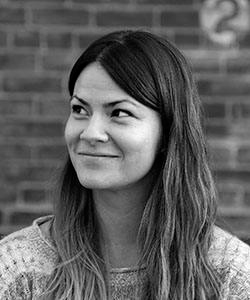Corrina Mehiel’s friends and colleagues say they remember her as a gifted artist and dedicated educator who brought inspiration, optimism and brilliance to her work and life.
Mehiel, a project assistant working with a visiting professor at the Corcoran School of the Arts and Design, left a lasting impact on people and communities from coast to coast before her untimely death. The 34-year-old was found fatally stabbed in her D.C. apartment last Tuesday.

Photo courtesy of Joan Kaup
Mehiel was a “social practice artist” who used sculpture, photography, film and other media to speak out about issues like community engagement, feminism and lead poisoning, her former colleagues from the Art Academy of Cincinnati said. Originally from Seattle, Mehiel also lived in Harrisburg, Pa. and, most recently, in Burnsville, N.C.
Mehiel leaves behind her father, Ron Mehiel, and step-mother, Lari Mehiel, both of Seattle.
She was working at the Corcoran as a project assistant to Mel Chin, the William Wilson Corcoran Visiting Professor of Community Engagement, on his Fundred Dollar Bill project that focused on the impact of childhood lead poisoning.
In a statement to media last week, Chin said Mehiel “embodied a life of kindness and generosity.” Her ambition, sensitivity and intelligence inspired others and gave them confidence, he said.
“If you felt a situation was hopeless, there was Corrina willing to tell you – it is not,” Chin said. “She was willing to apply her strength to prove it to you.”
Chin also highlighted Mehiel’s commitment to justice, particularly for issues of violence against women and minorities. In one of her community-focused art projects, Mehiel “fixed” stripped bicycles around Philadelphia by replacing stolen parts with works of art.
“To the person that did this to her, you are too late – you failed,” Chin said. “Corrina Mehiel has already liberated and emboldened so many people to fight for their beliefs. Her spirit will continue.”
Dawne Langford, the D.C. production coordinator at the Fundred Dollar Bill Project, worked closely with Mehiel and said the tragedy has been difficult for the project’s team.
“Corrina’s strength, leadership and optimism is what kept the team going and touched many people,” she said. She worked tirelessly on the Fundred Reserve and many aspects around Mel Chin’s social practice projects. I’m honored to have worked with her and the team.”
Before coming to the Corcoran, Mehiel was an adjunct professor at the Art Academy of Cincinnati from 2014 to 2016, teaching sculpture, design and social practice, and art and advanced tutorial, according to her faculty bio.
Mehiel earned a bachelor’s degree in visual arts and social practice from Pennsylvania State University in 2005, and a master of fine arts in sculpture, 4D art and social practice, according to her resume.
In addition to curating numerous exhibitions and holding leadership positions, Mehiel taught at universities, day schools and arts organizations in Kentucky, Ohio, Pennsylvania and Washington. She was an artist in residence at the Haystack School of Crafts in Deer Isle, Maine, and at the Dubai Community Theatre and Arts Centre in Dubai, according to her resume.
Jennifer Spurlock, the director of community education at the Art Academy of Cincinnati, said in an email that Mehiel used her art to break social boundaries and to serve as a “bridge between people.”
“Corrina’s talent took her many places and into many communities,” Spurlock said. “She made art accessible to people by taking it out of its usual context and into the streets.”
Spurlock recalled seeing Mehiel in a brightly colored polka-dot dress while working on her project Meter Gardens, where she planted miniature gardens in broken parking meters in Cincinnati’s inner city.
“Her dress was as bright as her smile, which was as bright as the flowers she was planting. All part of a social art project,” Spurlock said. “That was Corrina. Her spirit, smile, social impact was a total package.”
Mark Thomas, an associate dean of the Art Academy of Cincinnati, said the school’s close-knit community is “shocked” by Mehiel’s death.
“We have lost the promise of what Corrina would have done for the artist community and the community of greater good,” he said.


